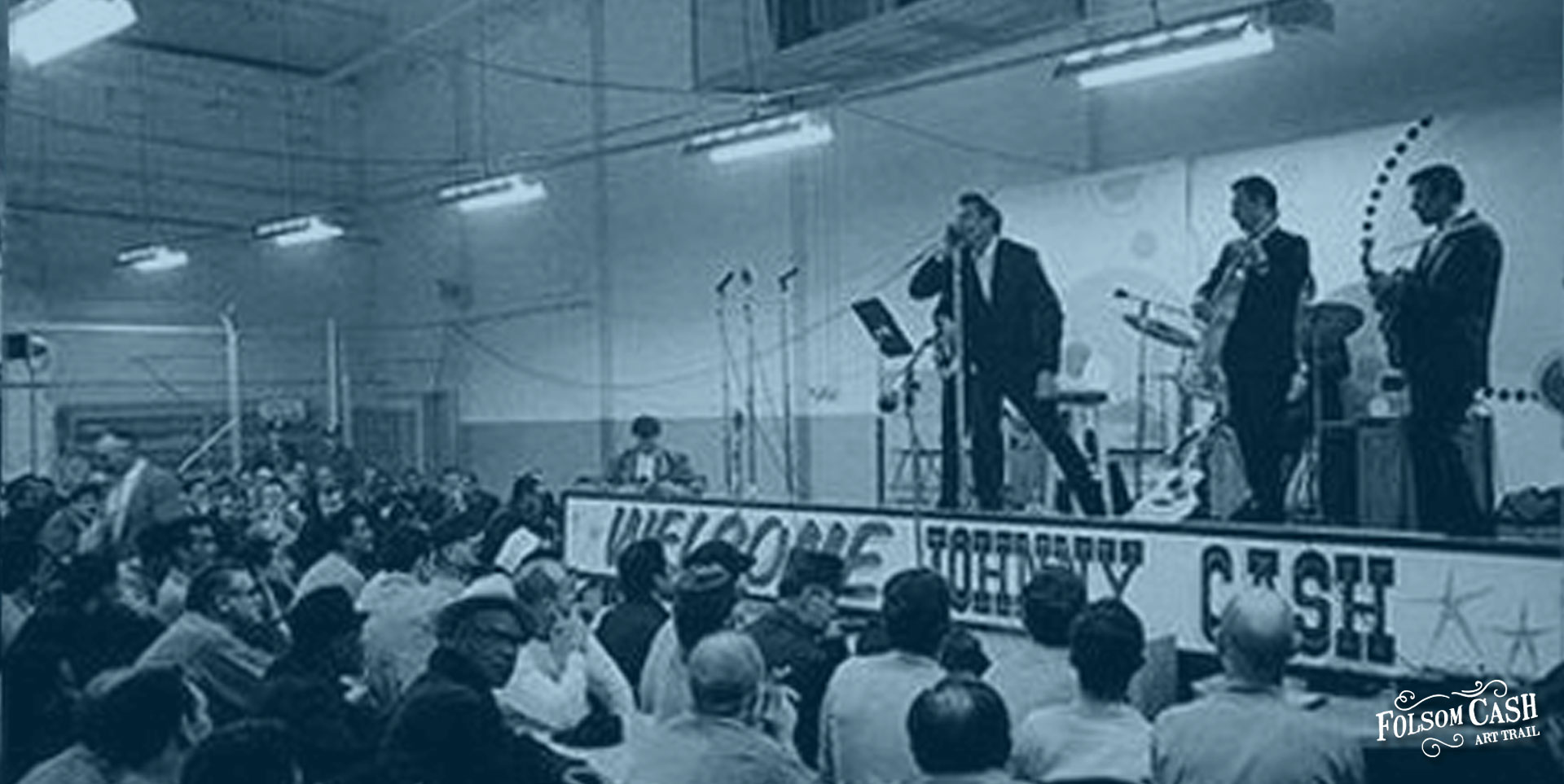Born to a poor Arkansas farming community in depression era America, Johnny Cash was raised with a strong sense of empathy for the downtrodden. While he lived a life of ups and downs, filled with contradictions and complications, one thing held true throughout his entire life: his sense of responsibility and charity to his fellow man.
In the words of his biographer, Michael Streissguth, "I think Cash had a feeling that somehow he had been endowed with this fame in order to do something with it."
And, time and again, that’s what he did. Using his fame and the resources that came with it as a tool to help make the world a better place, he would help others and advance causes he believed in.
Prison Performances and Advocacy
Johnny Cash’s live albums recorded at Folsom Prison and San Quentin Prison are the stuff of legend, but many don’t know that these were just a sampling of his many performances for prisoners over the years.
Over a period of thirty years, the Man in Black played dozens of free shows at U.S. prisons, bringing a message of hope to those who were incarcerated.
Cash spent a total of seven overnights in jail during his lifetime, for drunkenness and disorderly conduct, but never served time in a state prison cell. An imperfect man who was no stranger to making mistakes, he identified with inmates and saw in them a chance for rehabilitation and redemption.
His years of performing for prisoners inspired in him a need to speak out on their behalf, to give voice to their pains and needs.
He became an impassioned spokesperson for prison reform, going so far as to make direct appeals to the U.S. Senate subcommittee in 1972, which included a call for:
- Separation of first-timers and hardened criminals
- Focus on rehabilitation, not punishment
- Counseling to help convicts after release
- Reclassification of offenses to keep minor offenders out of prison
In some ways, his propensity to identify with prisoners started much earlier in his life. When stationed in Germany, in 1953, he saw the movie “Inside the Walls of Folsom Prison” which gave wings to his most infamous song, Folsom Prison Blues.
Penning the song from the perspective of an inmate who was sentenced to life, he placed himself squarely in the shoes of the criminal that society had forgotten and was able to see the world from that vantage point for the remainder of his days.


The REAL Story Behind Johnny Cash & Folsom Prison Blues
Discover the REAL story of Folsom Prison Blues, the anthem which would become one of Johnny Cash’s most beloved and well-known songs.
READ MORE

Children in Need
Cash had a soft spot for children in need; one that took root when he was in the Air Force and blossomed as he matured over the years.
As a very young air force soldier, John R. Cash was stationed in West Germany where he rose to the rank of Staff Sergeant and served as a Morse Code operator, intercepting Soviet Army transmissions. In his spare time, he would write short stories, love letters to his then-wife Vivian Cash, and play music around town with his band the Landsberg Barbarians.
It was also during this stint in West Germany that Cash witnessed the building of the first SOS Children's Village in Germany, just south of Munich, introducing Cash to their concept of caring for children who could no longer live with their families. This struck a chord in Johnny that still rang years later when he found fame and fortune.
Cash and second wife, June Carter, actively supported the construction of an SOS Children’s Village in Jamaica, on a plot of land in Barrett Town not far from their own holiday home.
The country music star later dedicated one of his songs, “The Ballad of Annie Palmer,” to the children of the village, donating all royalties from the song to the SOS Children’s Village. When discussing his decision to make this contribution, Cash said, "It will mean that more abandoned children can have hope, find love and have a future."
As often as possible, Johnny and June would visit the village, Cash usually bringing his guitar and singing with the children.
While he focused on helping build and develop the Jamaican SOS Children’s Home, the Man in Black kept close ties with the Munich home. In 1994, he invited a group from the SOS Children’s Village to a concert on his European tour, meeting with them after the show.
Even in death his fame helped fund this cause that was so dear to his heart. On September 12th of 2003, just four months after June Carter died, Johnny Cash passed away. His family asked that, in lieu of sending flowers for his grave, friends and fans make a donation in his name to the SOS Children’s Villages and that they did.
The organization was bolstered by a wave of donations made in the name of the Man in Black and the Cash family maintains continued involvement with the charity the so impassioned their father.
Johann Denk, director of SOS Children's Villages Jamaica said of Cash, after his passing, ”We have been friends and neighbors. Children always need idols, and Johnny Cash is one of them."
A man of many hats and many talents, being a philanthropist with his time and resources was a huge part of who Johnny Cash was and is part of the legacy that his family continues today. A flawed man who grew up knowing what it is to struggle, he used his fame and the wealth that came with it to help those in need, child and man, alike.
In the words of his daughter, Rosanne Cash, “Johnny Cash was a man whose heart beat with the rhythm of love and social justice.”
